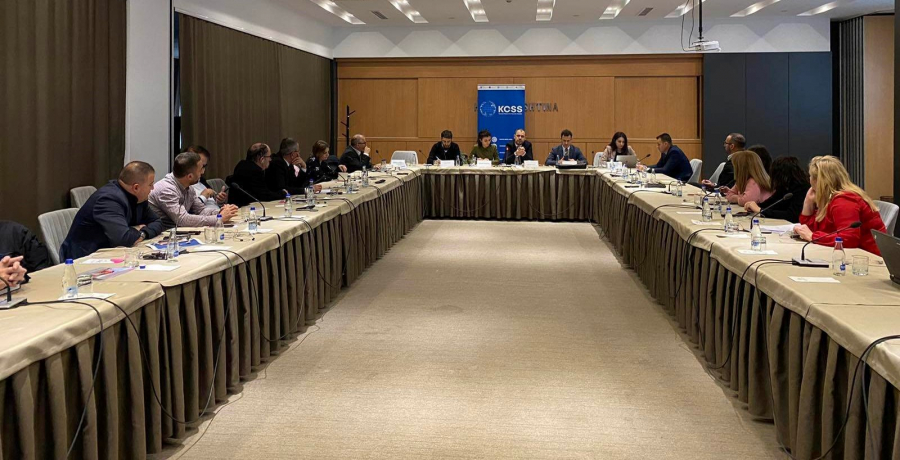8/12/2022

In the framework of the project “De-Radicalisation in Europe and Beyond: Detect, Resolve, Re-integrate (DRad)”, KCSS has organized today, 8th of December 2022, the policy roundtable title “How to effectively address (de)radicalization from a policy-making perspective: trends and best practices”. During this event, the conceptual framework of the DRAD project was presented to policy stakeholders in Kosovo, and an overview of case-study best-practices on existing policies and laws that address radicalization was outlined. Additionally, the roundtable also featured a panel discussion with representatives from public institutions and civil society members on issues relating to the rehabilitation and re-integration of radicalized individuals from a policy-making perspective.
During the first part of the policy roundtable, Dr Umut Korkut – Drad project lead and Professor of International Politics at Glasgow School for Business and Society at Glasgow Caledonian University – gave a presentation about the DRad project and the drivers of radicalization. Dr Doga Atalay – DRad researcher from the same university – presented the conceptual framework developed for the DRad project, namely the social inclusion-based approach to (de)radicalization. Further, DRad researcher Ms. Teuta Avdimetaj presented Kosovo findings related to hotspots of radicalization and I-GAP motivations. Lastly, DRad researcher Ms. Sophia Solomon gave a virtual presentation via the Zoom platform on the Interaction Study in Israel under the topic of "AI and (De)Radicalisation”.
The second part of the event was marked with a panel discussion with representatives from public institutions and civil society who discussed matters of rehabilitation and ri-integration from a policy-making perspective. Ms. Shkurte Krasniqi-Thaqi from the Division for Prevention and Reintegration of Radicalized Persons at the Ministry of Internal Affairs spoke about the mandate of this division and existing mechanisms for the rehabilitation and ri-integration of radicalized individuals. Mr. Bekim Gashi - Head of the Correctional Intelligence Unit at the Kosovo Correctional Service – highlighted the key achievements as well as the main challenges that the Kosovo Correctional Service face in the process of rehabilitation and reintegration. Theologian and journalist Mr. Fitim Flugaj discussed the role of the Islamic Community of the Republic of Kosovo in preventing radicalization, whereas Mr. Nuredin Ibishi – an expert on security issues – spoke on what lessons can be learned from the case of Kosovo in matters pertaining to rehabilitation and re-integration of radicalized individuals.
The policy roundtable was attended by representatives from several public institutions, including the Kosovo Correctional Service, Kosovo Probation Service and the Ministry of Internal Affairs, as well as representatives from NGO’s and international missions in Kosovo.
The project “De-Radicalisation in Europe and Beyond: Detect, Resolve, Re-integrate (DRad)” is implemented in the framework of RIA - Research and Innovation action as part of Horizon 2020, supported by the European Union (EU) and coordinated by the Glasgow Caledonian University.